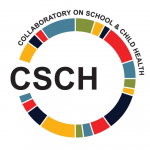Today’s emphasis on big data, test scores, and comparisons among groups fails to drill down on what we need to know to make the best decisions for an individual child.
Opinion: What We’re Getting Wrong About Gifted Education
November 12, 2019
Read stories by or about Neag School faculty, alumni, students, and other members of the community that appear in external news outlets.
November 12, 2019
Today’s emphasis on big data, test scores, and comparisons among groups fails to drill down on what we need to know to make the best decisions for an individual child.
November 8, 2019
In recommending the “schoolwide-enrichment model,” SDAG was promoting an alternative method for teaching gifted students. The theory was developed by Joseph S. Renzulli and Sally Reis of the National Research Center on the Gifted and Talented at the University of Connecticut. The theory has a “broadened conception of giftedness,” and “the centerpiece of the model is the development of differentiated learning experiences that take into consideration each student’s abilities, interests, learning styles, and preferred styles of expression,” Renzulli and Reis write. This enables the development of “talents in all children.”
November 4, 2019
There’s an Olympian spending time at the University of Connecticut right now and, if you think it’s a Husky basketball player, you are wrong.
The athlete is Karen Chammas, who represented her native Lebanon in the sport of judo at the 2012 London games, and she is spending late October and early November in Storrs as part of the Global Sports Mentoring Program.
October 30, 2019
I often worry that our focus on domestic students and their needs is causing an entire, important demographic to feel forgotten and unwanted.
October 30, 2019
U.S. Secretary of Education Betsy DeVos announced the 2019 recipients of the Terrel H. Bell Award for Outstanding School Leadership. The 10 principals from the 2019 cohort of National Blue Ribbon Schools will be honored during the National Blue Ribbon Schools awards ceremony on Thursday, Nov. 14, 2019 in Washington, D.C.
October 28, 2019
There is a lot of research on teachers’ use of waiting in the classroom and the positive effects it can have for student engagement and learning. The best news of all? Improving student learning only takes 3 seconds.
October 28, 2019
It gets harder and harder to treat dyslexia in children with every year that passes after preschool. Problem is, most kids don’t get diagnosed until they’re around 8 years old. Dyslexia particularly hard to detect in English-speakers, and teachers usually only recognize it once a child fails. That’s why researchers from three universities got together to make an app that will help teachers detect dyslexia in kids at an earlier age.

October 25, 2019
On October 23, 2019, CSCH cosponsored and hosted the Symposium on Trauma-Informed School Mental Health 2.0.” Approximately 70 school, behavioral health, community, and research leaders from across the state gathered at the University of Connecticut campus in Storrs to discuss school and community responses to childhood trauma and how to align work around trauma-informed schools in Connecticut.
October 24, 2019
“Colleges place significant weight on a student’s grade point average, class rank, and standardized test scores in the admissions process,” says Clewison Challenger. “For decades, these measures have informed how K-12 schools design curricula and counsel students on college readiness. Yet grades and SAT results alone are ineffective predictors of students’ college success.”
October 18, 2019
“As a researcher who has examined masculinity in college fraternities, I conclude that the reason these efforts have not succeeded is because they fail to deal with the fact that drinking alcohol – and other risky behaviors – are deeply embedded in society’s notions about what it means to be a man,” says Adam McCready.